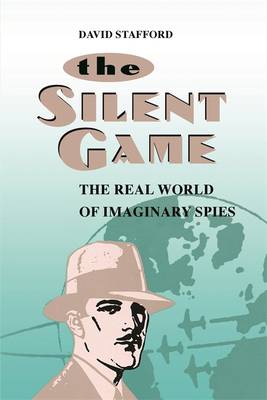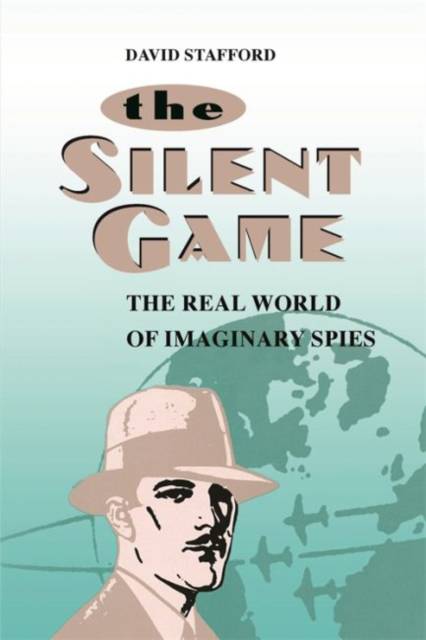
Bedankt voor het vertrouwen het afgelopen jaar! Om jou te bedanken bieden we GRATIS verzending (in België) aan op alles gedurende de hele maand januari.
- Afhalen na 1 uur in een winkel met voorraad
- In januari gratis thuislevering in België
- Ruim aanbod met 7 miljoen producten
Bedankt voor het vertrouwen het afgelopen jaar! Om jou te bedanken bieden we GRATIS verzending (in België) aan op alles gedurende de hele maand januari.
- Afhalen na 1 uur in een winkel met voorraad
- In januari gratis thuislevering in België
- Ruim aanbod met 7 miljoen producten
Zoeken
€ 47,45
+ 94 punten
Omschrijving
The Silent Game traces the history of spy writers and their fiction from creator William Le Queux, of the Edwardian age, to John le Carré, of the Cold War era. David Stafford reveals the connections between fact and fiction as seen in the lives of writers with experience in intelligence, including John Buchan, Compton Mackenzie, Somerset Maugham, Ian Fleming, and Graham Greene. Le Queux used his spy fiction as xenophobic propaganda before and after World War I, and le Carré's novels have provided reflections on the Cold War and the decline of Britain's influence. Anxieties about the decline of the American "empire" have helped stimulate a more vigorous American literature of espionage, providing an index of contemporary American concerns about power relations. As Stafford suggests, the genre of espionage fiction rarely intends to document the real world of intelligence. Rather, it provides a popular vehicle for exploring themes of imperial decline, international crisis, and impending war.
Specificaties
Betrokkenen
- Auteur(s):
- Uitgeverij:
Inhoud
- Aantal bladzijden:
- 272
- Taal:
- Engels
Eigenschappen
- Productcode (EAN):
- 9780820339436
- Verschijningsdatum:
- 28/02/2012
- Uitvoering:
- Paperback
- Formaat:
- Trade paperback (VS)
- Afmetingen:
- 152 mm x 229 mm
- Gewicht:
- 331 g

Alleen bij Standaard Boekhandel
+ 94 punten op je klantenkaart van Standaard Boekhandel
Beoordelingen
We publiceren alleen reviews die voldoen aan de voorwaarden voor reviews. Bekijk onze voorwaarden voor reviews.









